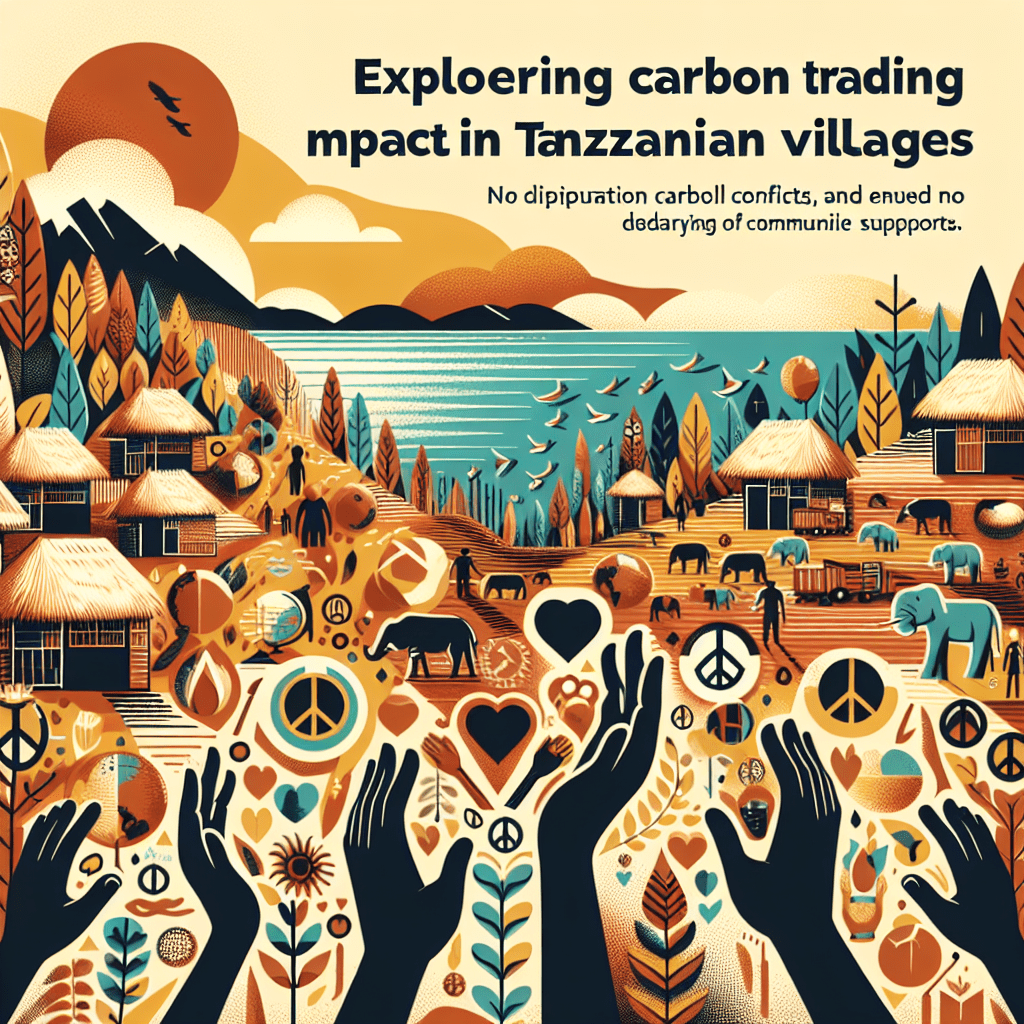Title: How Can Tanzanian Villagers Navigate the Complex World of Carbon Trading?
Meta Description: Discover the impact of carbon trading on Tanzania's rural communities. Explore the effects on land rights and local livelihoods.
As the sun rises over the expansive landscapes of Tanzania, the air is thick with more than just the usual morning mist; it's saturated with whispers of change and opportunity, laced with a hint of uncertainty. In regions like Loliondo and Kiteto, the concept of carbon trading is as new and perplexing as a sudden downpour in the middle of a dry season.
Understanding the Hype Around Carbon Trading in Tanzania
Carbon trading might sound complex, but at its core, it’s about balancing the books. Companies in industrialized nations offset their emissions by paying for carbon capture projects in places like Tanzania, turning carbon into a commodity as tradable as coffee or gold. But what does this mean for the local communities whose livelihood depends on the land now eyed by foreign firms?
The influx of carbon offset projects brings a cocktail of hope and anxiety. On one hand, there’s the potential for development and employment opportunities. On the other, there's fear. Villagers worry about losing their ancestral lands and the natural resources they rely on, not just for survival, but for their cultural identity.
Navigating New Challenges: Land Rights and Local Voices
Land rights in Tanzania are a delicate tapestry, woven through generations. As the global market taps into this new "green" asset, ensuring that local communities don't just become footnotes in lucrative contracts is crucial. Education about land rights and legal frameworks is more necessary than ever. Without this knowledge, villagers risk being swept aside by the tide of green investments.
Moreover, it’s vital for these communities to have a say in how these projects are implemented. They need to be part of the conversation, not just the subject of it. After all, sustainable development isn't just about preserving the environment but also ensuring the people connected to it thrive.
Creating a Synergy Between Conservation and Community
The true challenge lies in creating a model that benefits both the environment and the local communities. Could there be a way to harness this global interest in carbon credits to fuel community development? Imagine schools powered by solar panels funded by carbon trading revenues, or improved healthcare facilities.
Conclusion: A Call to Action for Empowerment
As this new chapter unfolds, the key for Tanzanian rural communities is empowerment through knowledge and collaboration. By understanding their rights and the mechanics of carbon trading, villagers can negotiate terms that respect their land and lifestyles while contributing to global environmental efforts.
FAQ Section
-
What is carbon trading?
Carbon trading allows countries or companies to buy rights to emit carbon dioxide, often by funding green projects in developing countries. -
How does carbon trading affect local communities in Tanzania?
While it can bring development opportunities, there's also a risk of communities losing control over their lands without adequate legal protections. -
How can Tanzanian villagers protect their land rights?
Education on legal rights and proactive community engagement in carbon trading projects are crucial. -
Can carbon trading genuinely benefit local communities?
Yes, if properly managed and transparent, it can spur local development while conserving the environment.
Hashtags
#Tanzania #CarbonTrading #LandRights #SustainableDevelopment #EnvironmentalImpact
Internal Links
- Related: Understanding Sustainable Farming in Tanzania
- Related: The Future of Green Technology in Africa
External Link
As Harvard Health explains, the overall well-being of a community is significantly influenced by environmental and economic factors.
